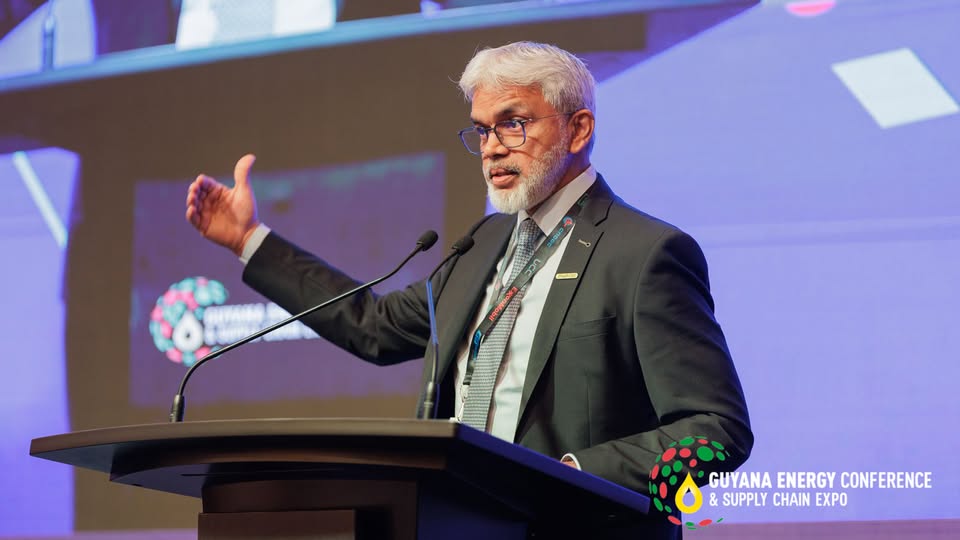PARAMARIBO, SURINAME – As Suriname prepares for first oil from Block 58 in 2028, Staatsolie CEO Annand Jagesar is urging discipline in how the windfall is managed, a point he emphasized in a September 24 interview with Het Financieele Dagblad’s Boudewijn Geels.
“Managing wealth is perhaps even more difficult than managing poverty,” he said, warning against the “resource curse” and calling for clear savings rules and long-term planning to avoid short-term consumption.
He pointed to neighboring Guyana as a cautionary case, citing rising housing costs and economic crowding-out of agriculture, fishing and tourism. “Our government should therefore maintain sufficient land around Paramaribo for housing for Surinamese people and ensure that food doesn’t become too expensive.”
On governance and transparency, he rejected claims by Ashwin Adhin, Chairman of the National Assembly for the NDP Government, that Staatsolie had “lost” $3 billion, pointing to the company’s audited financials and its 45-year operating track record. “We publish our annual accounts every year…we have nothing to hide. In its 45 years of existence, Staatsolie has transferred $5 billion to the state, and you don’t see any tangible results.”
Jagesar also highlighted the need for qualified personnel: “The oil industry itself isn’t that labor-intensive – according to calculations by TotalEnergies, it employs around 6,000 people. But for all the spin-off sectors, such as maintenance, public transport, airports, hotels, education and security, you also need around 25,000 qualified people. A relatively small percentage of the working population has a higher education; we won’t be able to manage with that.”
He argued that the share of the workforce with higher-professional or university training remains too small to meet that demand, pointing to an unusual pipeline trend: “Around 60% of students preparing for oil and gas are women. Boys aren’t studying anymore.”
Jagesar frames the oil window as a chance to rebalance the public sector and reskill at scale: “Suriname could easily do with 30,000 fewer civil servants … let’s retrain those people.”
Staatsolie head urges a system be put in place to ensure Suriname benefits from oil boom |OilNOW
He also makes a direct appeal to the diaspora, acknowledging long-standing sensitivities between Surinamese at home and those who built careers in the Netherlands, but urges highly educated Dutch-Surinamese professionals to return and help build capacity.
“Zanderij used to be ‘Heartbreak Airport’,” he said. “Let it be tears of joy now, because people are coming back.”



